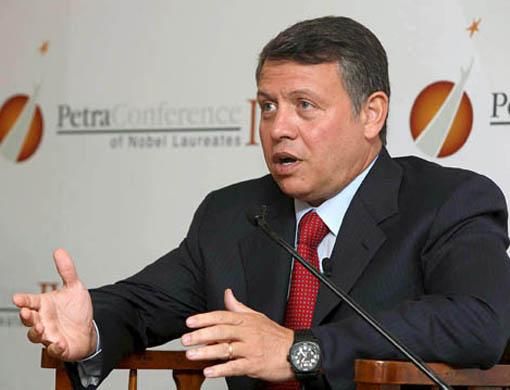Baghdad: Jordan's King Abdullah II held talks on Monday with Iraq's prime minister after arriving in Baghdad on an unannounced visit, the first by an Arab head of state since the US-led invasion toppled Saddam Hussein in 2003.
Abdullah called on Arab governments to "extend their hand to Iraq" because a strong Iraq "is a source of strength for the Arab nation," according to a statement released by the royal palace in the Jordanian capital of Amman.
An Iraqi government statement said Abdullah had "frank and positive talks" with Prime Minister Nouri Al Maliki on relations between the two countries. Al Maliki told the king that Iraq wanted to improve relations with all Arab countries, the statement said.
In turn, Abdullah expressed Jordan's support for Iraqi "efforts to impose stability," the statement added.
Ties between the two neighbouring countries had been strained since the fall of Saddam because of Jordanian fears that Iraq's Shiite-led government was too friendly with Shiite-dominated Iran.
Jordanian officials have been concerned about Iranian influence in Iraq and the loss of discounted oil, which Saddam once provided. Abdullah warned in 2004 about the emergence of a "Shiite crescent" including Iran, Iraq, and Lebanon — remarks that angered Iraqi officials.
But US officials had been urging Abdullah to visit Iraq to bolster ties between the two countries as part of Washington's campaign to shore up support for the Iraqi government as a counterweight to Iranian influence.
Al Maliki visited Jordan in June for the first time in nearly two years, and since then, the two nations appear willing to put their differences behind them. During that visit, Al Maliki agreed to renew oil supplies to Jordan for the next three years at discounted prices.
Jordan agreed to ease restrictions on the entry of Iraqi students and those transiting to a third country. Tens of thousands of Iraqis have sought refuge in Jordan to escape the sectarian violence that swept the country two years ago but has receded.
Jordan has also named an ambassador to Iraq, joining other Arab countries that have agreed to upgrade their relations as the Iraqi government becomes more stable and security has improved — despite sporadic attacks and ongoing military operations.
Jordan's King Abdullah visits Iraq, urges Arabs to support
Jordan's King Abdullah visits Iraq, urges Arabs to extend a helping hand













